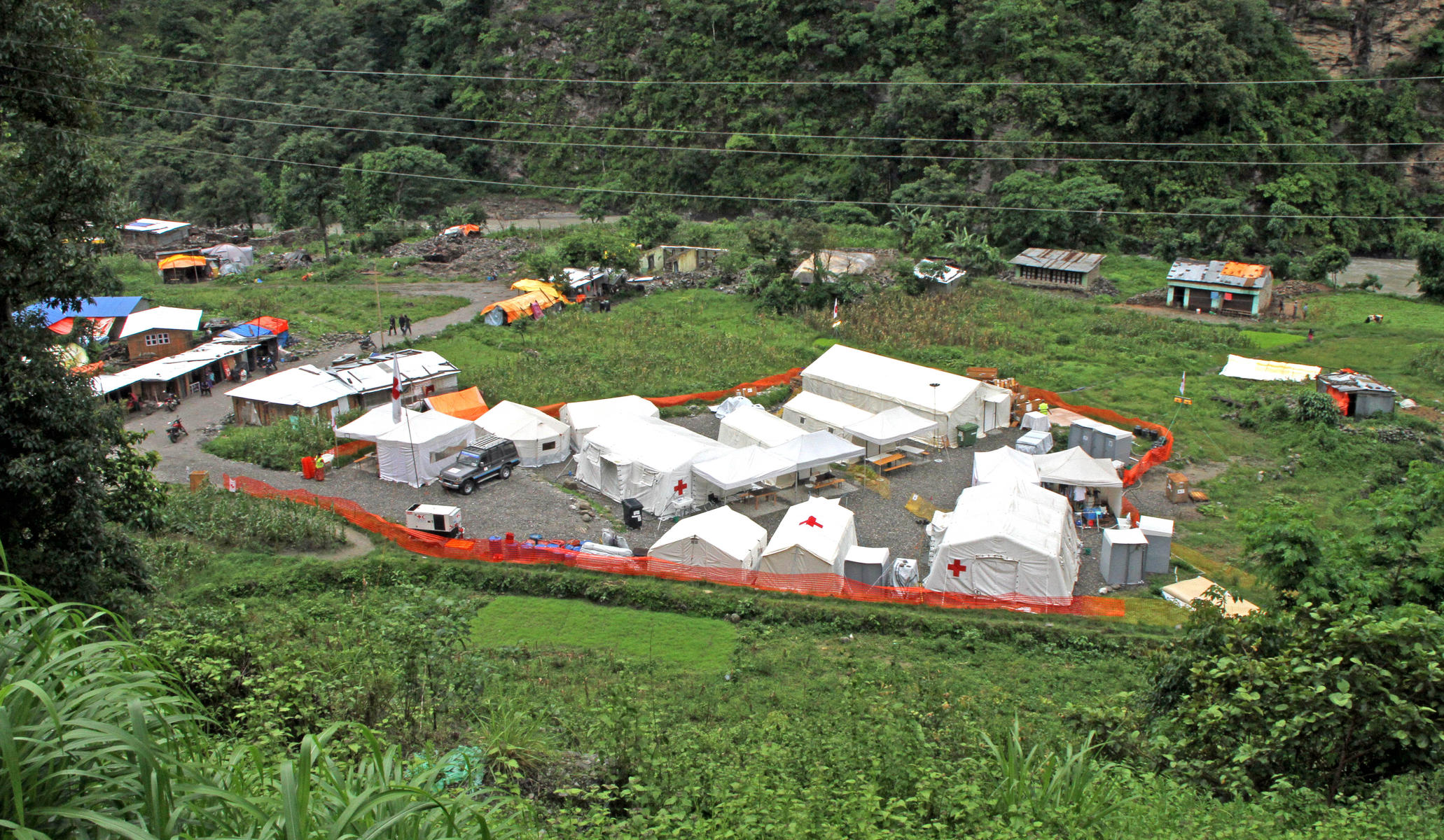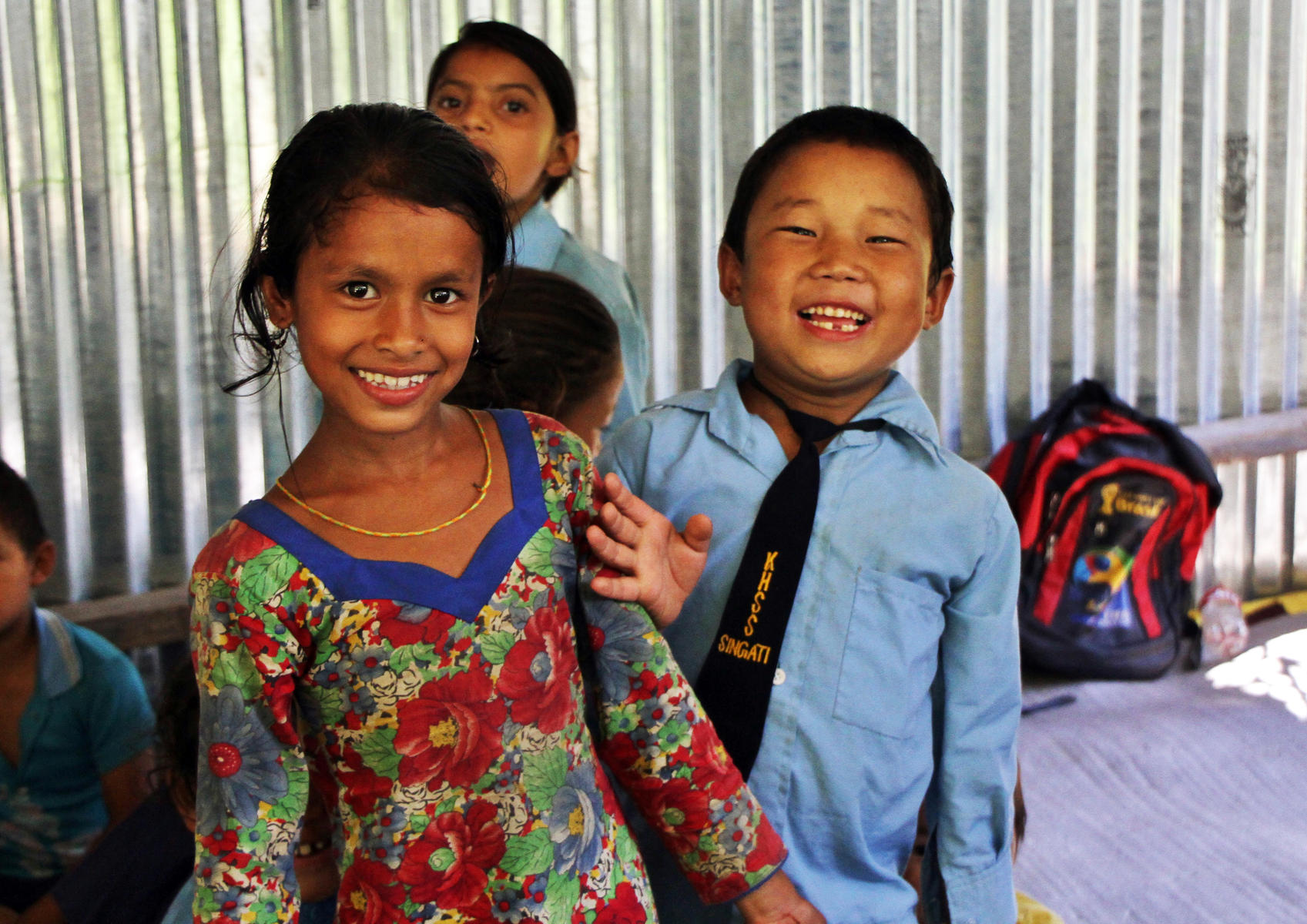How did things go with your departure for Nepal?
Antoine Jicquel: As is often the case in post-disaster situations, it all went very fast. Only a few days elapsed between the first appeal from the Foundation and obtaining my superior's agreement and my arrival in Nepal on July 8

A.J.: It involved working with the Red Cross in Singati, in the Sindhupalchok region, the hardest hit by the second earthquake occurring in May this year. A mobile BHCU (Basic Health Care Unit) had been installed east of Katmandu but the water supplied wasn't being consumed.
What was the problem?
A.J.: The water had a very pronounced chemical taste. Although the distribution system had been assembled correctly, the production mechanisms were defective. So I spent a lot of time figuring out what adjustments had to be made. The first difficulty was adapting to what was available on the spot since I didn't have the usual laboratory equipment for carrying out the tests generally performed in these circumstances. So, in liaison with the Foundation team, I had to do what I could with what was there. The second difficulty involved the water to be treated. Given its original quality and the landslides in the surrounding area which had altered its composition, we needed to be flexible and be able to adapt the process every day to obtain safe drinking water.
Adapt the process … and also train someone who could over from you?
A.J.: Yes, my objective was to become dispensable as soon as possible. I taught a Nepalese plumber how to measure the quality of the water every morning so as to adapt the treatment and decantation times and supply high-quality water suitable for consumption and use by the BHCU. In the end, we succeeded in doing this faster than I had imagined when I arrived.

A.J : Yes, once we had sorted out the water supply for the center, I participated in renovating two neighboring schools. In the first school, we had to renovate the water distribution system. We needed to increase water pressure; the pipework had been damaged and broken in some cases and we had to repair part of the water transmission network. A double faucet and two latrines were installed. In the second school, the goal was to facilitate access to the site, which had become particularly waterlogged due to landslides and the torrential rain that followed. We brought in a digger to install drainage trenches and gravel to make it easier for the children to access the school. Lastly, I also had time to help install an autoclave for sterilizing medical and surgical equipment at the Charicot hospital.
Being in places where disasters have struck tends to be a highly emotional experience. What was the toughest aspect for you?
A.J.: Working on a mobile health center that dealt with 100 consultations a day was really tough in human terms. You're living amidst people who have been seriously affected, physically injured, and even if you're there to carry out a technical job, the whole atmosphere is very tense. But that's also what makes a humanitarian mission so rewarding!
Antoine Jicquel in figures
34 years old.
10 years in the microbiology department of the Veolia Eau environmental analysis center.
Veoliaforce volunteer since 2008.
Three missions outside France: Pakistan in 2007, North Korea in 2007, Nepal in 2015.
Three weeks east of Katmandu.
10 years in the microbiology department of the Veolia Eau environmental analysis center.
Veoliaforce volunteer since 2008.
Three missions outside France: Pakistan in 2007, North Korea in 2007, Nepal in 2015.
Three weeks east of Katmandu.

